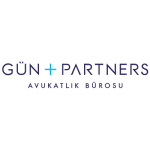Article 9 of the Turkish Regulation on Licensing concerns abridged applications. It provides that, if a pharmaceutical has been licensed before, it is not necessary to repeat the tests and research and the data from these tests does not have to be submitted for licensing again. Simply referencing the licensing information of the pharmaceutical that is pre-licensed is sufficient.
However, due to the obligation that the product that is subject to the reference application must be basically similar to the original product protected by patents, there is a strong risk of patent infringement.
Pharmaceutical licensing procedures are exempted from the scope of the patent right. However, the patent right holder should be informed about reference applications so that they can analyse whether the activities to be undertaken after the granting of a licence to the reference product would create a risk of patent infringement. This ensures that patent rights granted under the law are used effectively.
In this context, pursuant to Article 2 of the Attorneyship Act, attorneys for pharmaceutical companies that own the original product that is protected by a patent request from the Ministry of Health Turkish Medicines and Medical Devices Agency information as to whether a new product application (and/or abridged authorisation application or import permit application) that refers to the authorisation dossiers of pharmaceuticals protected by patents or other rights has been filed.
If there have been such applications, the attorneys also seek information on the number of applications and applicants; document registry information, including the dates; whether the applications were pending or not; whether the applications were withdrawn, dismissed or returned for any purpose; the stage of pending applications; and whether an authorisation was granted.
State Council decision in 2007
In 2007, two cases were brought before the State Council, in which Gün + Partners acted for clients and as a proxy. In these cases, the attorneys of the patent owner pharmaceutical companies requested this information and the Ministry of Health rejected these information requests.
The State Council decided to cancel the decision and actions of the Ministry of Health refusing to provide the requested information. It held that the information on “whether an abridged licensee application has been made by referring to the licence of the plaintiffs, and if so, the number of them and by whom” should be provided. This decision of the State Council was followed and the information request applications were duly answered by the Agency which was under the Ministry of Health until June 2019.
However, the Agency subsequently changed its approach even though there was no amendment in the circumstances or in the case law of the State Council. This made a second administrative lawsuit inevitable.
The change left rights holders in the dark regarding how to protect their rights, as the Agency responded to information requests from patent holder pharmaceutical companies with the statement: “The requested information is included in the Licensed Pharmaceuticals List and Active Substance List published on the official website of TİTCK.”
However, the Licensed Pharmaceuticals List or Active Substance List, which the Agency referred to, does not include important information such as whether the abridged licence application has been made, who the applicant is, the application date or the status of the application.
These lists, which do not include more information than the number of the applications, have led to a serious risk to the protection of the rights of the patent holder.
New lawsuit
In the second lawsuit filed, the legal ground of the case was determined to be wrongful and the case was dismissed by a majority vote. However, the dissenting opinion stated that the documents and information requested are not trade secrets. Therefore, rejecting the request for information is against the law.
As a result of the appeal brought against this decision, the District Court has dismissed the decision of the Court of First Instance. Once again, similar to the previous decision of the State Council:
As per Article 39 of the Agreement on Trade-Related Aspects of Intellectual Property Rights and Article 28 of the Regulation on Licensing, the rule of confidentiality of information regarding applications made for obtaining a licence for a product is limited to preventing the information and documents in the file from being viewed by others and protecting information that has economic value from being shared.
It is possible to control whether the data submitted to the original pharmaceutical licence file by inventors is effectively protected against unfair competition by the administration only by having information on the abridged licence applications made with reference to the pharmaceutical licences they have.
Within this context, concluding that the applications made for receiving information by the manufacturer invention owners as trade secrets would mean restricting efficient use of the right to legal remedies.
The court’s ruling cancelled the response given by the Agency, which was the defendant in the case.
Evaluation
The unlawfulness of the Agency’s non-response to requests for information was already determined by the State Council decisions years ago. Responding to applications requesting information that is duly filed pursuant to the decision of the State Council has turned into a settled administrative practice.
However, the fact that the Agency suddenly stopped providing the requested information in response to the applications for information – contrary to the decision of State Council, its practices and law – created an element of surprise in the sector.
The decision reinforcing the earlier determinations of the State Council strengthens the position regarding an original licence holder company’s request for information on reference licence applications.
With this second decision, arbitrary changes in the attitude of the administration will come to an end and an administrative institution will be prevented from being an obstacle to the protection of the patent rights of the original licence holders.
Aysel Korkmaz Yatkın
Partner, Gün + Partners
E: aysel.korkmaz@gun.av.tr
Fatma Sevde Tan
Senior associate, Gün + Partners













